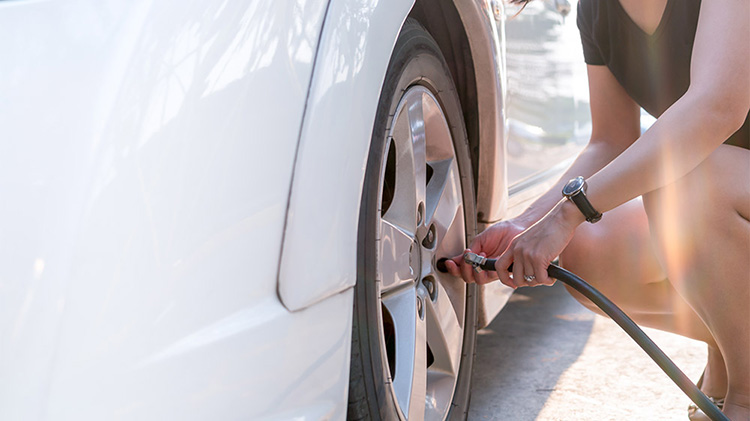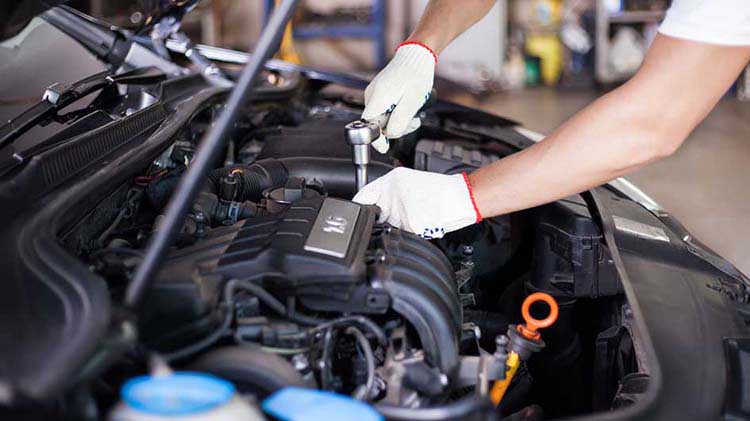Weatherproofing: how to prepare for a heat wave
Extreme heat preparedness for your home and vehicle.
According to the National Oceanic and Atmospheric Administration, July 2021 was officially the hottest month ... ever. As we prepare for another potentially record-breaking summer, it’s critical to consider how this heat affects your home, car and other personal property. Find out how to prepare for extreme heat and summer temperatures.
How to prepare your car for hot weather
Sun exposure can cause a lot of wear and tear on your car. These conditions can wreak havoc on many systems in ways you may not expect, so it’s important to make sure certain elements are in tip-top shape going into the season.
Tires
Excessive heat can reduce the elasticity of rubber found in tires and windshield wiper blades. Make sure you have good quality wiper blades, such as those made with silicone rubber, which is more resistant to the elements. Check your tires for cracks and keep them filled to the recommended tire pressure to help prevent any additional strain on the rubber.
Car battery
Your battery is another part that may struggle in hot summer weather. Before the season changes, make sure to check the age of your battery. If it’s old and nearing the end of its life, consider replacing it now. An older battery may not be able to hold a charge during periods of high-energy demand, such as when you are running the air conditioning. Better to swap your battery out now than to be left stranded in dangerous heat.
Fluids
Some experts recommend timing your fluid changes to occur before summer and winter months. Depending on your vehicle and climate, your car may benefit from different types of oil in the summer and winter months. Regardless of whether or not you need different products, it’s best to make sure that your oil and other fluids are at recommended levels before going into a new season.
Coolants and climate control system
Coolants ensure elements of your engine stay at the right temperature while the climate control system manages the temperature of the inside cabin of your car. If your coolant is more than a year old, change it before summer. Make sure it is at the appropriate level and top it off if needed. It’s a good idea to have your climate control system checked before summer as well. If your air conditioner is working too hard, it can put a strain on the engine and lead to breakdowns.
Weatherproofing your home
Keeping your home cool in extreme temperatures can be expensive, but it can also be dangerous if you consider how much energy goes into continuously running an air conditioner. According to SafeElectricity.org, if your air conditioner is overused, it can stress the overall electrical health of your home and leave you vulnerable to electrical fires or shocks. That’s why weatherproofing your home and extreme heat preparedness is so important. Here are some tips to help keep your home cooler in the summer and reduce the electrical strain that the air conditioner can cause.
Insulation
Updating the insulation in your house — especially in the ceiling — can prevent cold air from leaking out of your house. In addition to preventing air-conditioned air from escaping, improving your ceiling insulation can lower the overall temperature of the house.
Air conditioner
It’s best to call a professional to check your air conditioner every year to make sure it’s running efficiently. There are some things you could do on your own, like replacing any filters and carefully clearing the outside unit of debris, leaves and dirt.
Awnings
Installing window awnings to prevent sunlight from coming directly in the windows can also reduce your need for air conditioning and save energy. For a west-facing window, awnings can reduce solar heat gain by up to 77%.
Ceiling fans
According to energy.gov, ceiling fans are effective at cooling your home because they keep air moving throughout rooms. In fact, if you run your ceiling fan counterclockwise and have your air conditioner on at the same time, you can turn up the thermostat by about four degrees and still have the same level of comfort.
Timer or programmable thermostat
Now is a good time to get ahead of the heat and install a timer-based or programmable thermostat. When you program a thermostat to increase the temperature while you’re gone, it can reduce your reliance on an air conditioner and decrease your energy needs. Not only does this decrease the energy stress on your home, it can also save you money. In normal to moderate climates, having a programmable thermostat can save you 10% on your energy bill.




